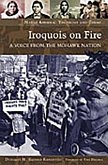This study contends that historians and intellectuals failed to understand the difference between race and ethnicity, which has in turn impaired their ability to understand who Black people are in America. The author argues that Black Americans are to be distinguished from other categories of black people in the country: black Africans, West Indians, or Hispanics. While Black people are members of the black race, as are other groups of people, they are a distinct ethnic group of that race. This conceptual failure has hampered the ability of historians to define Black experience in America and to study it in the most accurate, authentic, and realistic manner possible.
This confusing situation is aggravated further by the fact that many scholars tend to describe Black people in an arbitrary manner, as Africans, African Americans, Afro-Americans, black or Black, which is insufficient for precision. They sometimes downplay the historical evidence regarding African identity, and the identity of Blacks in America. Wright offers a new methodological basis for undertaking Black history: namely, the framework of historical sociology. He argues that this approach will produce a more useful history for Black people and others in America.
This confusing situation is aggravated further by the fact that many scholars tend to describe Black people in an arbitrary manner, as Africans, African Americans, Afro-Americans, black or Black, which is insufficient for precision. They sometimes downplay the historical evidence regarding African identity, and the identity of Blacks in America. Wright offers a new methodological basis for undertaking Black history: namely, the framework of historical sociology. He argues that this approach will produce a more useful history for Black people and others in America.









